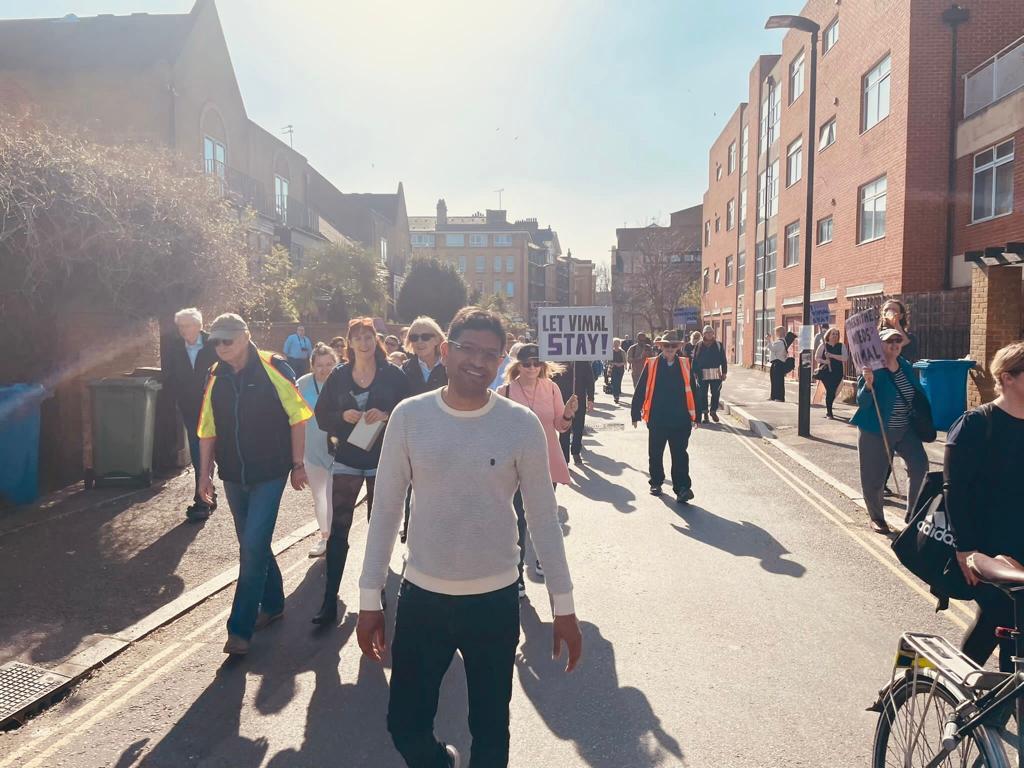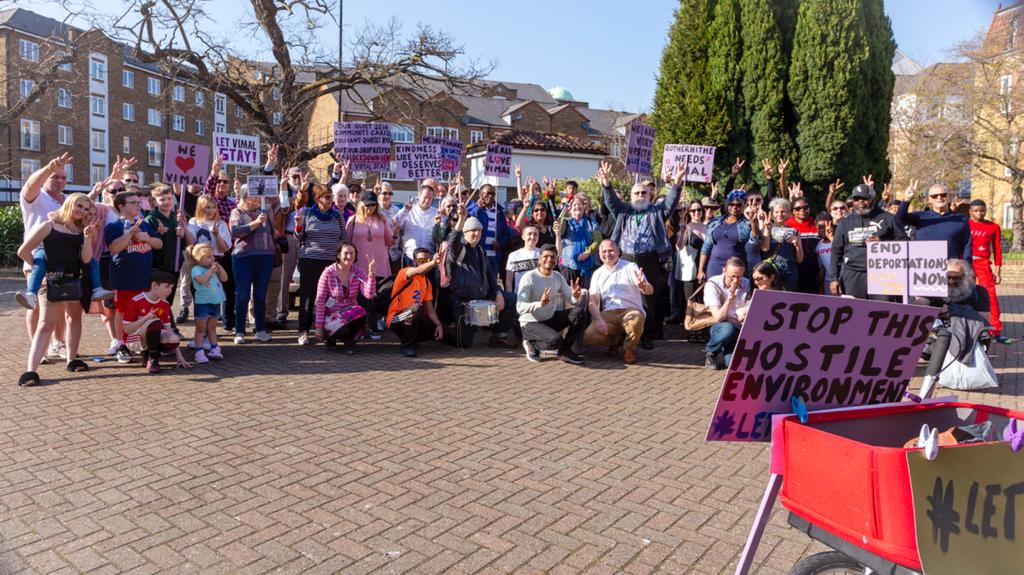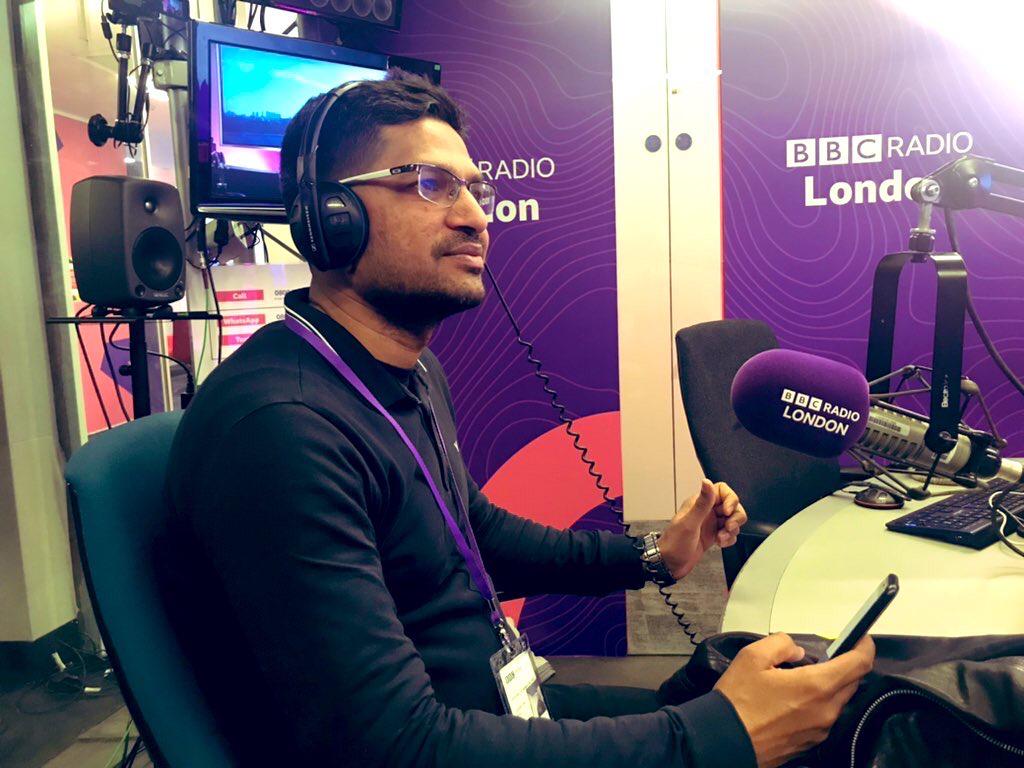
A man honoured by the late Queen’s personal representative for helping his community during the pandemic could be forced to leave his home in the UK after losing an immigration appeal.
Vimal Pandya, 42, arrived in the UK from India in 2011 with a study visa, but his college’s right to sponsor foreign students was revoked by the Home Office in 2014, and he has since spent years fighting to remain in the UK.
In spite of this, Mr Pandya has cemented himself as a “pillar of the community” in Rotherhithe, south London.
He received a letter of thanks in 2021 from the Queen’s Lord-Lieutenant in London, Sir Kenneth Olisa, for going “above and beyond the call of duty” to deliver essential supplies to vulnerable people during lockdown.
A petition demanding Mr Pandya be allowed to remain in the UK has surpassed 175,000 signatures, while hundreds of people have attended demonstrations supporting him. It comes after reports Rishi Sunak is considering a crackdown on foreign students studying “low-quality” degrees in a bid to cut migrant numbers.
After addressing members of Southwark Council on the matter in November, he received a standing ovation from councillors and a unanimous motion of support urging the government to support his case, which was submitted to his immigration tribunal on 13 January.
But a judge rejected his appeal, following a hearing that Mr Pandya described as his last hope, given the harrowing wait and cost of fighting another.

“Mentally I don’t have the energy to go on another six or 12 months from here on because I’m really, really stressed. It’s really challenging and I feel very low sometimes, it’s not nice to be in this situation,” Mr Pandya told The Independent.
Mr Pandya is understood to have just a fortnight from the date of the verdict to decide whether to challenge the judge’s decision, after which point he will be at risk of removal by the Home Office.
“We are devastated at the result of Vimal’s appeal,” said a supporter of the campaign. “This past year we have done all we could to help him, as he has helped so many of us.
“We are utterly dismayed that our efforts have not been enough. We will continue to do whatever we can to fight to make sure he can stay in his home, in Rotherhithe, where he belongs.”

Having worked as a stockbroker in Gujarat, Mr Pandya enrolled at a licenced sponsor college in London.
But after travelling briefly to India in 2014 to accompany the daughter of a seriously ill family friend, he was told by Border Force officials upon landing at London City Airport that the college’s licence had been revoked.
Mr Pandya’s passport and biometric residence permit were seized at the airport and are still held by the Home Office.
His visa was curtailed until June 2014 and he was given temporary admission to remain in the UK so long as he reported to the airport twice every month, according to Mr Pandya.

But despite repeated and costly attempts to resume his education at another institution and regain immigration sponsorship, he claims that he was unable to do so without his seized documents or a Home Office curtailment letter, which he says he never received – allegations disputed by Judge Adrian Seelhoff in the tribunal ruling.
After spending thousands seeking to win the right to remain in the UK, including £9,000 on an unsuccessful judicial review in 2015, Mr Pandya began working illegally at a shop in Rotherhithe. When the pandemic struck, he took it upon himself to deliver essentials to vulnerable residents by foot, sometimes working 20-hour days.
But in May 2021, three months after he was honoured by the monarch’s representative, immigration officials appeared at the shop and detained him for questioning, serving him with a notice of liability to removal.
In challenging the notice, Mr Pandya argued that it breached his rights to a private life. After this was rejected by the Home Office, he appealed this verdict at Hatton Cross tribunal hearing centre a fortnight ago.

But while the judge accepted that the removal notice interfered with the “significant private life” Mr Pandya has built in the UK, he said that this was “clearly in accordance with the law” – and was instead a matter of weighing the strength of these rights against the public interest.
In a ruling dated 24 January, Judge Seelhoff acknowledged that Mr Pandya had made a “genuinely exceptional” contribution to the community apparently “motivated out of a selfless desire to help others”, and had been “an overwhelmingly positive factor in the lives of hundreds of individuals and families”.
But he said that Mr Pandya “has done this as someone who was admitted as a student with no expectation of ever having been allowed to live here permanently” and that Mr Pandya “built his private life not only by overstaying but also by working when he did not have permission”.
Judge Seelhoff said he was “satisfied in legal terms at least that the process [Mr Pandya] went through was not unfair”.
Mr Pandya’s leave to remain “was properly cancelled and he was given fair opportunities to seek an alternate college”, the judge ruled, adding that he “then went underground and made no attempt to regularise his status and worked illegally for many years after his right to remain in the UK came to an end in 2014”.
The Home Office has been approached for comment.







